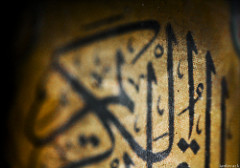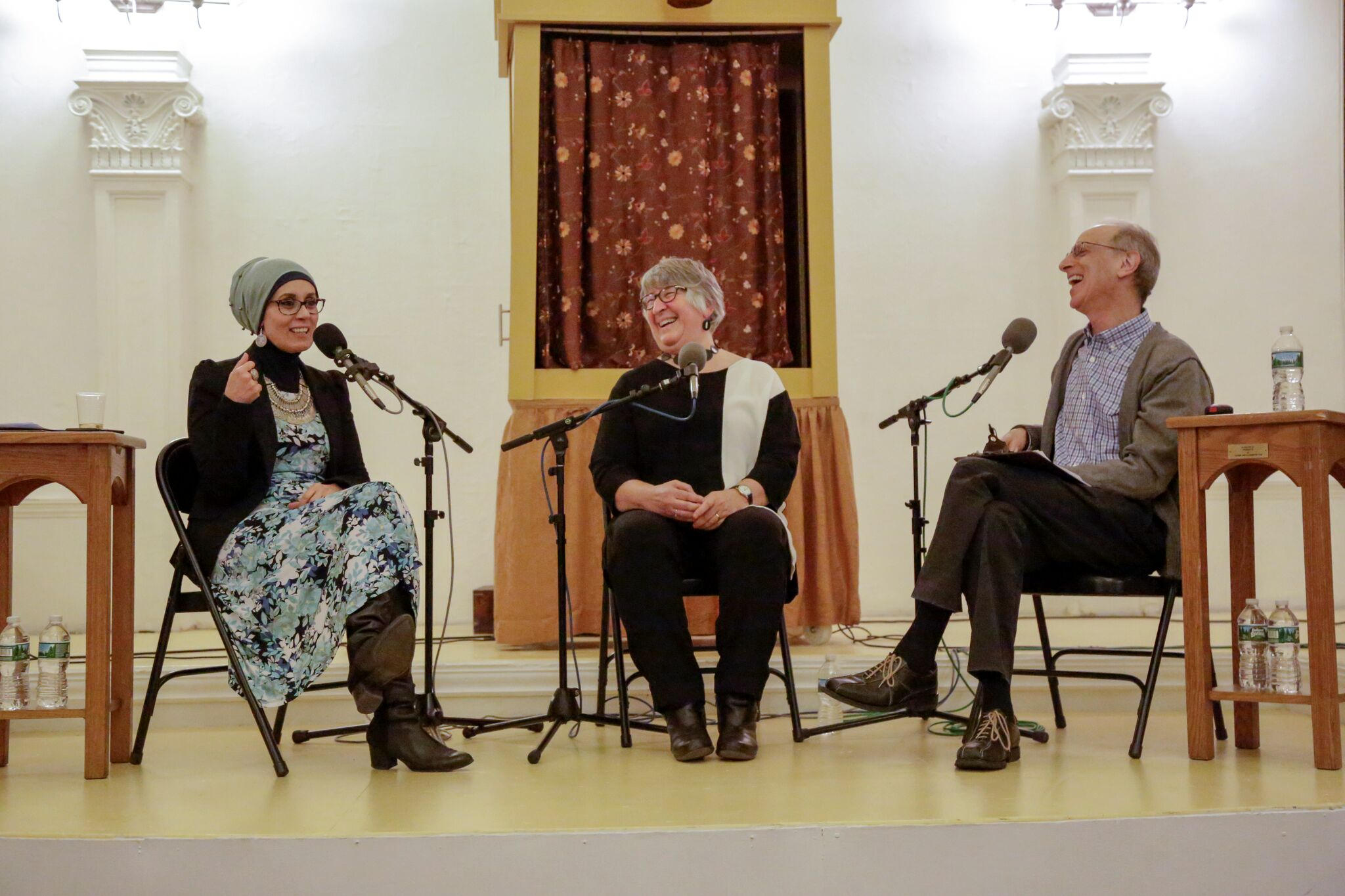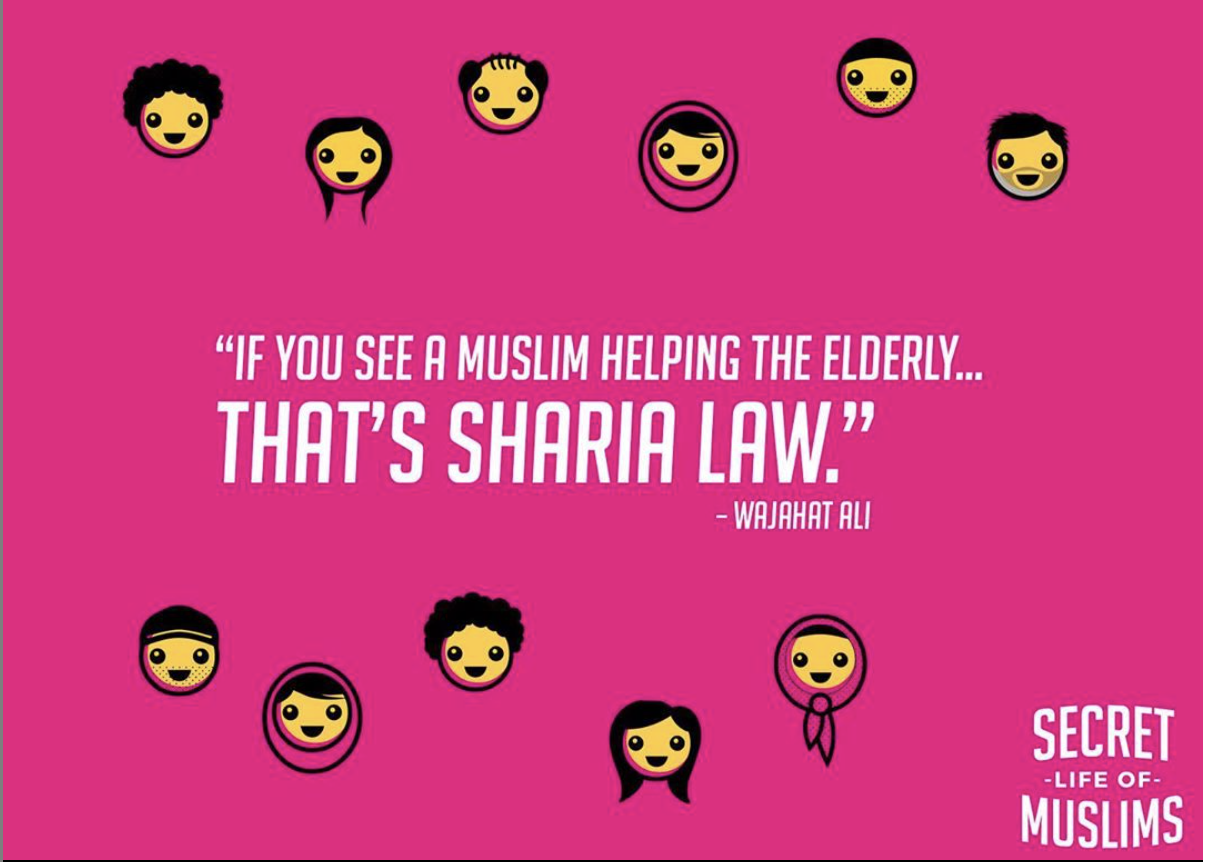Given that we are deep into Advent, I thought it fitting now to explore The Study Quran on the theme of Mary, Mother of Jesus. The ample index tells us that there are more than 50 references to Jesus in the Quran, and more than 15 to Mary. They are mentioned in the editors’ commentary many more times, as the index shows us. The editors point out that Mary is the only woman named in the Quran; while most such named figures are prophets, there is debate about Mary’s status, some listing her among the prophets, others preferring to say that she is “an exceptionally pious woman with the highest spiritual rank among women” (763).
They add that in a hadith (traditional saying), “the Prophet names Mary as one of the four spiritually perfected women of the world,” (763) who will “lead the soul of blessed women to Paradise” (143). In Sura 66 (Forbiddance), Mary is evoked again respectfully, “the daughter of Imran, who preserved her chastity. Then We breathed therein Our Spirit, and she confirmed the Words of her Lord and His Books; and she was among the devoutly obedient” (66:12). One commentator, Fakhr al-Din al-Razi, takes this to mean that Mary “believed in all previous revelations.”
…
In Sura 3 (The House of Imran), Mary is introduced as the daughter of Imran and his wife, who prays, “I have named her Mary, and I seek refuge for her in Thee, and for her progeny, from Satan the outcast.” (3:36) Mary is then placed by the Lord under the care of Zachariah, father of John. This version of the Annunciation follows:
And (remember) when the angels said, “O Mary, truly God has chosen thee and purified thee, and has chosen thee above the women of the worlds. O Mary! Be devoutly obedient to thy Lord, prostrate, and bow with those who bow” (3:42-43).
She is twice chosen: as the pious girl dwelling in the Temple, and as the mother of Jesus. A few verses on, the angelic message is put this way,
O Mary, truly God gives thee glad tidings of a Word from Him, whose name is the Messiah, Jesus son of Mary, high honored in this world and the Hereafter, and one of those brought nigh. He will speak to people in the cradle and in maturity, and will be among the righteous.” She said, “My Lord, how shall I have a child while no human being has touched me?” He said, “Thus does God create whatsoever He will.” When He decrees a thing, He only says to it, “Be!” and it is. And He will teach him the Book, Wisdom, the Torah, and the Gospel. And (he will be) a messenger to the Children of Israel (3:45-48).
Finally, Sura 19 (Maryam) treats Zachariah and John at its start, Abraham and Moses later on, and in-between (19:16-36) recounts again the story of Mary and how she came to give birth to Jesus. Mary, exiled in the desert and alone, prays to a mysterious figure who comes to her: “I seek refuge from thee in the Compassionate, if you are reverent.” (19:18) He is an angel, a messenger, who tells her about the son she will bear. Mary consents, but after conceiving the child, she is again alone and bereft, and cries out in words that refugees worldwide may be tempted to use even today: “Would that I had died before this and was a thing forgotten, utterly forgotten!” (19:23) The angel shows her the running water and date palm tree that Lord has provided for her, and she survives. When confronted by her gossiping neighbors when she returns home with her newborn child (there is no Joseph, no Bethlehem, in this account), Mary chooses to be silent (as Zachariah was by force) and lets the child speak for itself:
He said, ‘Truly I am a servant of God. He has given me the Book and made me a prophet. He has made me blessed wheresoever I may be, and has enjoined upon me prayer and almsgiving so long as I live, and (has made me) dutiful toward my mother. And He has not made me domineering, wretched. Peace be upon me the day I was born, the day I die, and the day I am raised alive! (19:30-33)
Read more.
Photo Credit.






In this age and time people have different ideals. What should be the ideal of a Muslim and on which path a Muslim should go? To learn the answer of this question read this blessed ayah of the Quran AL Kareem غير المغضوب عليهم ولا الضالين from this ayah it is clear that a Muslim should follow the path of those people upon whom Allah Almighty bestows his blessings.